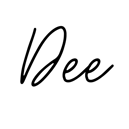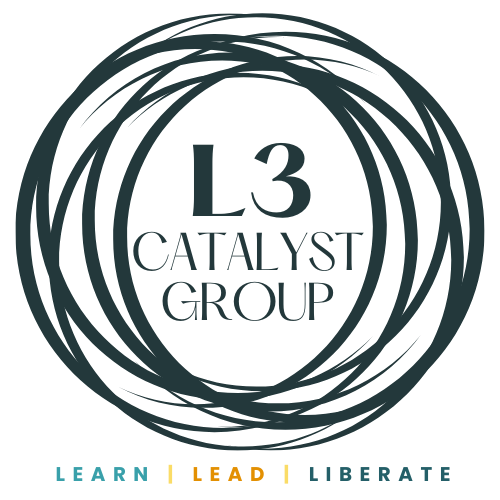Unpacking the paradox of inequality
Why is inequality a contentious concept for some?
Whether you are incredulous that people don't see inequality in the United States, or are dubious that inequality is real, it's critical to unpack the paradox of inequality and see it clearly so that we can do something about it.

I LOVE the University course I'm teaching on Diversity and Inequality; it is significantly deepening my understanding. This is the first of a few blogs this fall highlighting concepts I'm teaching that impact leadership, learning, and liberation.
Last week a student stopped me after class and said "I wish everyone had to learn these things about Diversity and Inequality in North America." Me too, brilliant student, me too.
I'm excited to share my learning about the paradox of inequality with you, and I look forward to hearing your questions, wonderings, and examples.
The paradox of inequality highlights that (Ore, 2023):
-
A focus on human agency obscures other levels of inequality. Human agency ability to make life choices for oneself. This belief in human agency hides the inequality that is built into our systems of how we understand and interact with race, gender, class, and sexuality.
 The focus on agency blinds us to systems that create and reinforce hierarchy based on race, gender, class, sexuality, ability, etc. For example, when we consider food deserts in cities, a person may say "why don't they just drive to a good grocery store" or "people should just make better choices by buying fruits and vegetables" (presuming human agency). This obscures the lack of transportation systems and good-paying jobs, which typically are a reality in areas marred by redlining and intentional disinvestment where more People of Color and lower-income households reside.
The focus on agency blinds us to systems that create and reinforce hierarchy based on race, gender, class, sexuality, ability, etc. For example, when we consider food deserts in cities, a person may say "why don't they just drive to a good grocery store" or "people should just make better choices by buying fruits and vegetables" (presuming human agency). This obscures the lack of transportation systems and good-paying jobs, which typically are a reality in areas marred by redlining and intentional disinvestment where more People of Color and lower-income households reside. -
The American Dream depends on a focus on human agency. As the American Dream is also a paradox, it relies on core components of the belief that opportunity occurs equally, and that success is reasonable and reliant on individual responsibility. The last component is the belief that success is virtuous, and failure is deemed a sin.

If you drive through neighborhoods in the US, it's clear that opportunity isn't equal. In K-12 education many years ago we called racialized outcomes achievement gaps, and I was relieved when we shifted to call them opportunity gaps. It gets closer to the source and the truth. -
Inequality and stratification are dependent on being unacknowledged. Stratification is the ranking or hierarchy of people based on identity as illustrated by race, class, gender, and sexuality. People will make many subtle to overt moves to keep inequality unacknowledged, from claiming colorblindness to passing legislation to disallow talking about inequality.
Many folks in the US believe we should be colorblind, in a clear system of hierarchy based on race marked by racialized outcomes in every system from healthcare to housing to education. The gender pay gap is absurd, compounded when you consider the pay gap for Women of Color. Anti-gay and anti-trans laws are proposed at an astronomical rate while anti-discrimination laws are on the books. Yet acknowledging this mocked as weakness...or worse. -
Thus, we focus on exceptions and not the patterns. Cultural beliefs are often illustrated through media, and the following movies illustrate our cultural obsession with exceptions: The Pursuit of Happyness, the Blind Side, and Dangerous Minds.
 In the US we love it when a team comes from behind to win mightily. Focusing on exceptions hides the pattern. We blame people experiencing poverty as weak and lazy, when the minimum wage hasn't been raised significantly in years. We blame familes without a place to sleep, when the average minimum-wage worker in the U.S. must work 113 hours per week (2.8 full-time jobs) to afford a two-bedroom rental home at fair market rent.
In the US we love it when a team comes from behind to win mightily. Focusing on exceptions hides the pattern. We blame people experiencing poverty as weak and lazy, when the minimum wage hasn't been raised significantly in years. We blame familes without a place to sleep, when the average minimum-wage worker in the U.S. must work 113 hours per week (2.8 full-time jobs) to afford a two-bedroom rental home at fair market rent.
How do you see these characteristics at play in your life, community, family, or workplace? I observe mental gymnastics to preserve the belief in the American Dream and protect the paradox of inequality.
I'd love to hear your thoughts in the comment below.
Demystifying concepts helps us see more clearly, to develop the consciousness to examine and change attitudes and behaviors that create or perpetuate inequality.
Fellow leaders and learners, I wish you courage, rest, and beloved community along the journey.
Together we catalyze a brave, bold, and liberatory future.


Post by
Dee (Deanna) Rolffs (they/them)
October 1, 2024
October 1, 2024
Dee (Deanna) Rolffs (they/them), Owner & Principal Consultant at L3 Catalyst Group, is a coach, strategist, facilitator, and change agent applying the Process Consulting approach with anti-oppression and liberatory frameworks. Specializing in crisis and change leadership, they support brave and badass leaders and teams illuminate underlying issues, infuse learning, envision a just future, and walk a transformational path forward. Dee is committed to equitable systemic outcomes, healthy humans, and thriving teams. Dee serves on the board of their local Pride Center, is messily learning to practice meditation, and is always up for truth telling about oppression and living life in liberatory joy.




Comments